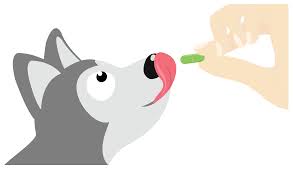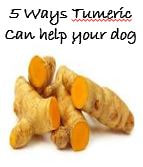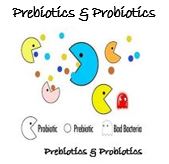Daily Supplements for Healthy Companions
By Dr. Jean Hofve, Holistic Veterinarian
www.onlynaturalpet.com
(great site to browse in)
By Dr. Jean Hofve, Holistic Veterinarian
www.onlynaturalpet.com
(great site to browse in)
The articles and information in the Holistic Healthcare Library are presented for informational purposes only and are not intended as an endorsement of any product. The information is not intended to be a substitute for visits to your local veterinarian. Instead, the content offers the reader information and opinions written by our staff, guest authors, and/or veterinarians concerning animal health issues and animal care products.

The Foundation
Diet is the foundation of health. Nothing can replace a healthy diet for promoting optimal health, and in warding off both acute and chronic disease. A healthy diet for dogs and cats includes as much fresh food as possible - and food of the highest quality you can provide, (see the articles about food & diet in our Holistic Healthcare Library). Yet, even the best quality diet will not provide optimal wellness if your dog or cat is not digesting and absorbing it properly. And even the freshest homemade diet may be missing key nutrients. We recommend regular daily supplements depending on the individual’s specific diet and lifestyle, but there are some essentials that every cat and dog can benefit from. Here is what we recommend for a healthy companion animal for general health maintenance and “health insurance” – insuring your pet has everything he needs to best ward off immune stressors and disease:
Digestive Enzymes
When food is not properly broken down before reaching the large intestine, particles that are too large for the body to process are absorbed into the bloodstream setting off an immune response that can lead to inflammation, allergies and chronic health problems. Nature’s way of preventing this was to endow every vegetable, fruit and animal food source with enzymes that help break it down. These enzymes are destroyed, however, by heat and processing. Every dog or cat, especially those who are eating cooked or processed food, should receive digestive enzymes with every meal. For pets receiving a raw-meat based diet, these enzymes are still needed to process all plant-source ingredients. This will not only improve digestion and the assimilation of nutrients, but it helps protect against the development of allergies and many other disorders. Improving digestion and utilization of nutrients can help to prevent and eliminate a host of diet-related problems such as eating stools, body odor, excessive shedding, flatulence and itchy skin. Digestive Enzymes are a crucial part of improving digestion and gastrointestinal health.
Diet is the foundation of health. Nothing can replace a healthy diet for promoting optimal health, and in warding off both acute and chronic disease. A healthy diet for dogs and cats includes as much fresh food as possible - and food of the highest quality you can provide, (see the articles about food & diet in our Holistic Healthcare Library). Yet, even the best quality diet will not provide optimal wellness if your dog or cat is not digesting and absorbing it properly. And even the freshest homemade diet may be missing key nutrients. We recommend regular daily supplements depending on the individual’s specific diet and lifestyle, but there are some essentials that every cat and dog can benefit from. Here is what we recommend for a healthy companion animal for general health maintenance and “health insurance” – insuring your pet has everything he needs to best ward off immune stressors and disease:
Digestive Enzymes
When food is not properly broken down before reaching the large intestine, particles that are too large for the body to process are absorbed into the bloodstream setting off an immune response that can lead to inflammation, allergies and chronic health problems. Nature’s way of preventing this was to endow every vegetable, fruit and animal food source with enzymes that help break it down. These enzymes are destroyed, however, by heat and processing. Every dog or cat, especially those who are eating cooked or processed food, should receive digestive enzymes with every meal. For pets receiving a raw-meat based diet, these enzymes are still needed to process all plant-source ingredients. This will not only improve digestion and the assimilation of nutrients, but it helps protect against the development of allergies and many other disorders. Improving digestion and utilization of nutrients can help to prevent and eliminate a host of diet-related problems such as eating stools, body odor, excessive shedding, flatulence and itchy skin. Digestive Enzymes are a crucial part of improving digestion and gastrointestinal health.
"A basic multivitamin supplement is a good investment for most of our companions. Think of it as health insurance – making sure the body has everything it needs for proper cell function and health maintenance will keep your companion healthier, which will reduce future veterinary bills for the treatment of nutrition-related diseases, such as diabetes, arthritis, and heart disease."
Probiotics
The first line of defense for your dog's or cat's immune system is the digestive tract, and helping to maintain the right balance between among the various strains of organisms normally living there can play a critical role in supporting your pet's overall health. The so-called "bad" bacteria are a normal part of the intestinal environment but they can easily over-multiply when "friendly" bacteria are depleted due to stress, diet change, illness, and with the use of medications, particularly antibiotics. Probiotics are often used to help occasional diarrhea, flatulence and foul smelling stools, and are absolutely essential for any animal receiving antibiotics or any other prescription drugs that deplete intestinal microflora. Probiotics are also thought to help reduce allergy symptoms. A daily dose of probiotics can help your pet's GI tract maintain the right ratio of bacterial strains and keep this key part of your pet's immune system functioning optimally.
The first line of defense for your dog's or cat's immune system is the digestive tract, and helping to maintain the right balance between among the various strains of organisms normally living there can play a critical role in supporting your pet's overall health. The so-called "bad" bacteria are a normal part of the intestinal environment but they can easily over-multiply when "friendly" bacteria are depleted due to stress, diet change, illness, and with the use of medications, particularly antibiotics. Probiotics are often used to help occasional diarrhea, flatulence and foul smelling stools, and are absolutely essential for any animal receiving antibiotics or any other prescription drugs that deplete intestinal microflora. Probiotics are also thought to help reduce allergy symptoms. A daily dose of probiotics can help your pet's GI tract maintain the right ratio of bacterial strains and keep this key part of your pet's immune system functioning optimally.
Essential Fatty Acids
Dogs and cats require both Omega-3 fatty acids and Omega-6 fatty acids in their diet for optimal health. Usually, pets receive plenty of Omega-6 fatty acids (found in most vegetable oils and animal-source fats) through their food, but that is not true for the Omega-3 fatty acids. The positive effects of Omega-3 fatty acids are primarily due to two fatty acids called EPA and DHA. EPA is a crucial part of every cell membrane, and it has powerful anti-inflammatory properties. DHA is important for the development and maintenance of neural structures such as the retina and brain. In addition, these essential fatty acids act to reduce inflammatory processes in the body, lessening the effects of arthritis and many other problems associated with inflammation.

The plant-source Omega-3, alpha-linolenic acid, does not provide the full benefits of EPA and DHA; and our pets can’t convert it. The easiest and best way to supplement these essential fatty acids is with fish oil, such as salmon, sardine, anchovy, or cod liver oil. These oils contain EPA and DHA in the precise form needed by our cats and dogs. Make sure the oil you choose is free of toxic heavy metals and other contaminants, and that it is formulated especially for pets, to avoid the added vitamins and flavorings that human products typically contain.
Supplementing with natural fish oil facilitates your companion's optimal health in many ways:
Multi Vitamins
Many of us take a daily multivitamin to insure we receive an elemental amount of important vitamins and minerals. The typical American diet does not provide a well-balanced source of these nutrients for most people, so we take supplements as “insurance.” Our companions can benefit from a daily multivitamin as well. Much of the vitamin content in packaged dog and cat foods is destroyed during processing. Even when added back in after the cooking or extruding processes, the vitamins and minerals break down rapidly when exposed to light and air. The first bowl of kibble from a bag may contain most of what the label claims, but many vitamins and other nutrients degrade over time. It is difficult to know how much, if any of the vitamins are left in the last portions from the bag.
Minerals tend to be much more stable over time, so replacing them is not a concern. However, processed commercial pet foods contain an excess of most minerals, making supplementation potentially hazardous if certain minerals, such as zinc, become excessive. If your pet is eating a good quality natural pet food, large amounts of minerals in a supplement are unnecessary.
If you are feeding homemade food, it’s important to recognize that many common recipes are deficient in essential vitamins and minerals. Many whole food sources no longer contain the high vitamin content they had in the past due to depleted soils and modern farming practices. All essential minerals, particularly calcium, do need to be supplemented in homemade diets. For cats, taurine and other feline-specific nutrients also need to be added.
A basic multivitamin supplement is a good investment for most of our companions. Think of it as health insurance – making sure the body has everything it needs for proper cell function and health maintenance will keep your companion healthier, which will reduce future veterinary bills for the treatment of nutrition-related diseases, such as diabetes, arthritis, and heart disease.
As with any other supplement, all multivitamins are not created equal, and not every dog or cat needs the full dosage suggested on the label. While supplementing for “insurance” is helpful, too much of a good thing can be harmful. If you are feeding a fresh food that is professionally formulated, then your companion does not likely need the full dose of a daily vitamin; half would likely suffice. If you are feeding homemade food, then a full dose of a multivitamin supplement is a good idea. Also, when feeding homemade food or raw food, pay close attention to the calcium content of the food and be sure to supplement if need be. Raw diets tend to be higher in phosphorus, and calcium must be supplemented to insure a proper balance.
Variety is the spice of life, and it is quite necessary for optimal health. It’s great to keep 3 or 4 different multivitamin, green, or whole-food supplements on hand to rotate in your companion's diet. An easy way to add vitamins, minerals (in appropriate quantities), and digestive enzymes are the Only Natural Pet Ultimate Daily Vitamins Plus - they come in powders and soft chews!
You know your dog or cat best, so watch them closely and notice when they seem livelier or more sluggish, when their eyes are brighter, or their coat is a bit more shiny or dull, and adjust your supplement regimen to meet their needs. If you are unsure or overwhelmed by the process of choosing supplements, consulting with a holistic veterinarian can set you and your companion on course with a healthy diet and supplement regimen that meets your lifestyle and your companion’s health needs.
Extra Support for Puppies and Kittens
Puppies and kittens are more vulnerable to parasites and disease than mature animals because their immune systems are still developing. In addition, they are under a great deal of stress as they leave the safety and familiarity of their mothers and try to learn the ways of living with a human family. We highly recommend that all puppies and kittens diets be supplemented with colostrum to help boost their immature immune system for at least a month or two after weaning.
Supplementing with natural fish oil facilitates your companion's optimal health in many ways:
- Nourishes the skin & coat; reduces inflammation associated with itching and hot spots
- Supports the immune system
- Supports the health of the digestive and reproductive systems
- Supports healthy cardiovascular function and heart health
- Helps reduce inflammation and maintain joint health
- Supports proper brain and eye development in growing kittens and puppies
Multi Vitamins
Many of us take a daily multivitamin to insure we receive an elemental amount of important vitamins and minerals. The typical American diet does not provide a well-balanced source of these nutrients for most people, so we take supplements as “insurance.” Our companions can benefit from a daily multivitamin as well. Much of the vitamin content in packaged dog and cat foods is destroyed during processing. Even when added back in after the cooking or extruding processes, the vitamins and minerals break down rapidly when exposed to light and air. The first bowl of kibble from a bag may contain most of what the label claims, but many vitamins and other nutrients degrade over time. It is difficult to know how much, if any of the vitamins are left in the last portions from the bag.
Minerals tend to be much more stable over time, so replacing them is not a concern. However, processed commercial pet foods contain an excess of most minerals, making supplementation potentially hazardous if certain minerals, such as zinc, become excessive. If your pet is eating a good quality natural pet food, large amounts of minerals in a supplement are unnecessary.
If you are feeding homemade food, it’s important to recognize that many common recipes are deficient in essential vitamins and minerals. Many whole food sources no longer contain the high vitamin content they had in the past due to depleted soils and modern farming practices. All essential minerals, particularly calcium, do need to be supplemented in homemade diets. For cats, taurine and other feline-specific nutrients also need to be added.
A basic multivitamin supplement is a good investment for most of our companions. Think of it as health insurance – making sure the body has everything it needs for proper cell function and health maintenance will keep your companion healthier, which will reduce future veterinary bills for the treatment of nutrition-related diseases, such as diabetes, arthritis, and heart disease.
As with any other supplement, all multivitamins are not created equal, and not every dog or cat needs the full dosage suggested on the label. While supplementing for “insurance” is helpful, too much of a good thing can be harmful. If you are feeding a fresh food that is professionally formulated, then your companion does not likely need the full dose of a daily vitamin; half would likely suffice. If you are feeding homemade food, then a full dose of a multivitamin supplement is a good idea. Also, when feeding homemade food or raw food, pay close attention to the calcium content of the food and be sure to supplement if need be. Raw diets tend to be higher in phosphorus, and calcium must be supplemented to insure a proper balance.
Variety is the spice of life, and it is quite necessary for optimal health. It’s great to keep 3 or 4 different multivitamin, green, or whole-food supplements on hand to rotate in your companion's diet. An easy way to add vitamins, minerals (in appropriate quantities), and digestive enzymes are the Only Natural Pet Ultimate Daily Vitamins Plus - they come in powders and soft chews!
You know your dog or cat best, so watch them closely and notice when they seem livelier or more sluggish, when their eyes are brighter, or their coat is a bit more shiny or dull, and adjust your supplement regimen to meet their needs. If you are unsure or overwhelmed by the process of choosing supplements, consulting with a holistic veterinarian can set you and your companion on course with a healthy diet and supplement regimen that meets your lifestyle and your companion’s health needs.
Extra Support for Puppies and Kittens
Puppies and kittens are more vulnerable to parasites and disease than mature animals because their immune systems are still developing. In addition, they are under a great deal of stress as they leave the safety and familiarity of their mothers and try to learn the ways of living with a human family. We highly recommend that all puppies and kittens diets be supplemented with colostrum to help boost their immature immune system for at least a month or two after weaning.

Aging Animals
As animals age they need extra support to stay healthy and maintain the best quality of life well into their senior years. Holistic vets often recommend starting dogs on extra support for joint health at the age of 8-9 years old, and cats at the first signs of stiffness. A good joint supplement including glucosamine and chondroitin, as well as MSM, can be extremely helpful in reducing the symptoms of arthritis and joint degeneration. Supplements with ingredients like bromelain, Boswellia, and Chinese herbal formulas can be added for additional joint support as needed. Note that most joint supplements require several weeks to reach optimal effect.
A senior vitamin or extra antioxidants added to an aging pet’s regimen can help fight the damage caused by free radicals, which contributes to many degenerative conditions, and give their immune system extra help in keeping illness at bay. CoEnzyme Q10 is an antioxidant supplement that holistic veterinarians often recommend for older animals, to help protect the heart and support gum health. For senior animals beginning to show cognitive decline, antioxidant supplements and Omega-3 fish oils will support brain function. Some Chinese herbal formulas containing tonic or adaptogenic herbs can also be quite supportive for the aging animal. Again, working with a holistic veterinarian is the best way to insure you choose the right support for your companion.
As animals age they need extra support to stay healthy and maintain the best quality of life well into their senior years. Holistic vets often recommend starting dogs on extra support for joint health at the age of 8-9 years old, and cats at the first signs of stiffness. A good joint supplement including glucosamine and chondroitin, as well as MSM, can be extremely helpful in reducing the symptoms of arthritis and joint degeneration. Supplements with ingredients like bromelain, Boswellia, and Chinese herbal formulas can be added for additional joint support as needed. Note that most joint supplements require several weeks to reach optimal effect.
A senior vitamin or extra antioxidants added to an aging pet’s regimen can help fight the damage caused by free radicals, which contributes to many degenerative conditions, and give their immune system extra help in keeping illness at bay. CoEnzyme Q10 is an antioxidant supplement that holistic veterinarians often recommend for older animals, to help protect the heart and support gum health. For senior animals beginning to show cognitive decline, antioxidant supplements and Omega-3 fish oils will support brain function. Some Chinese herbal formulas containing tonic or adaptogenic herbs can also be quite supportive for the aging animal. Again, working with a holistic veterinarian is the best way to insure you choose the right support for your companion.




